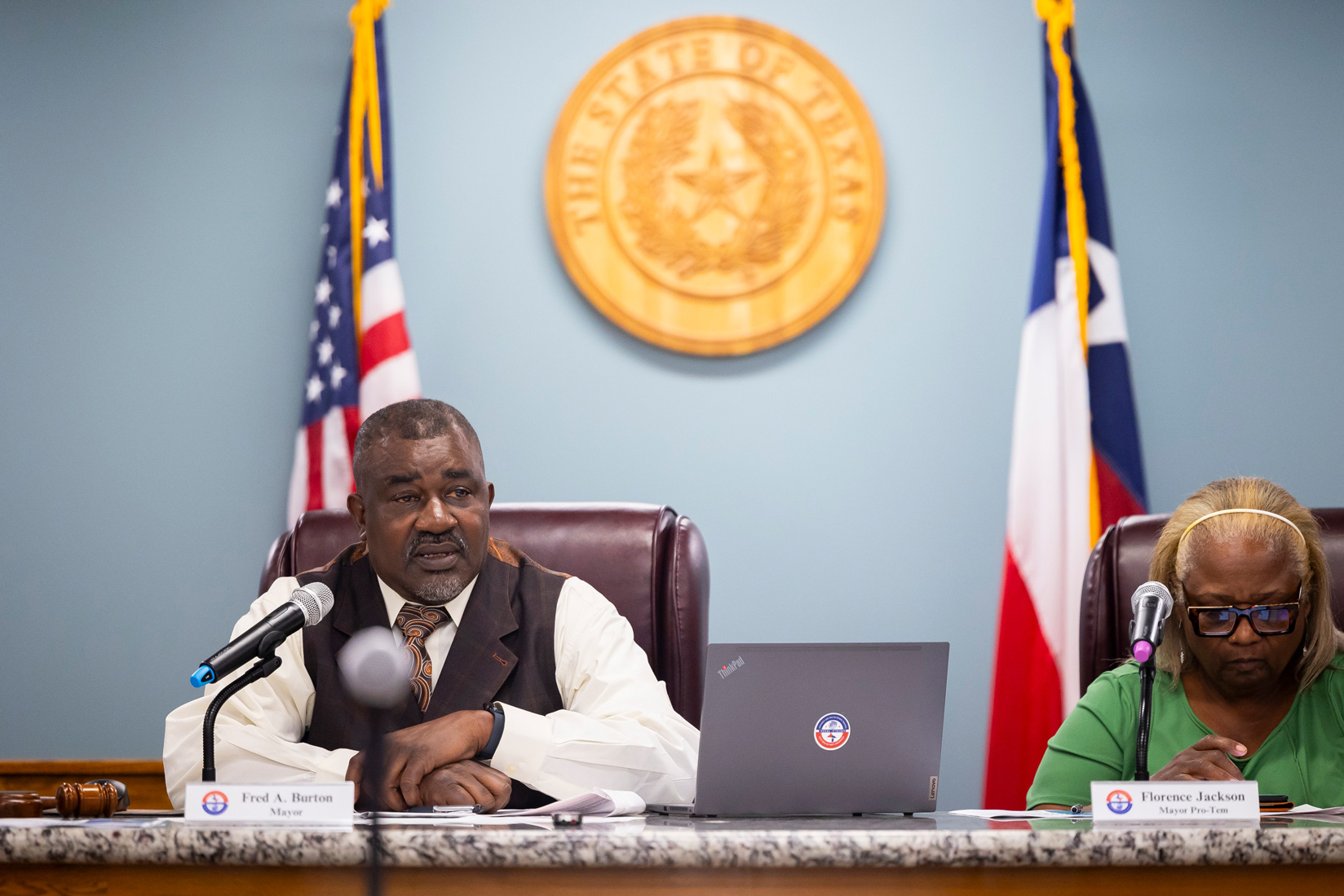|
Getting your Trinity Audio player ready...
|
By his account, private investigator David Weed walked into a Fort Bend ISD middle school in February, asked for the addresses of Arcola City Councilmember Ebony Sanco’s two children and received it on the spot.
The act, detailed in an investigative report produced for Arcola Mayor Fred Burton in his quest to take down Sanco, infuriated the mother of two and prompted an investigation by Fort Bend officials into the purported disclosure.
“That was out of line,” Sanco said. “They need to leave my kids out of it.”
But while Sanco felt violated by the investigator’s tactics, they are perfectly acceptable in some school districts, where rules governing what student information can be disclosed to the public are murkier than many parents might know.
Under a little-known section of the federal Family Educational Rights and Privacy Act, or FERPA, schools can disclose “directory information” about their students to strangers — including their name, address, telephone number and birthdate.
The law says school administrators must notify parents annually about “directory information” and give them time to request their child’s information not be disclosed.
FERPA also allows school districts to implement their own — often tighter — rules about releasing student information. Seven of the Houston region’s largest districts, including Fort Bend, do not include addresses in a list of information they will disclose to the public upon request. But three others — Cypress-Fairbanks, Katy and Humble ISD — do, unless parents object.

related to arcola
Houston-area mayor spent taxpayer money on private investigator to spy on council member
by Briah Lumpkins / Staff Writer
FERPA defines the personal data that can be disclosed as student information that “would not generally be considered harmful or an invasion of privacy” if shared.
Yet for many parents, the release of their child’s name and address to strangers is a clear invasion of privacy. Sanco said the disclosure of her children’s information from the school went “too far,” and employees at the campus didn’t notify her that Weed obtained the information.
Fort Bend officials said they are investigating the incident detailed in the report to “see if any district policies were violated.” District officials did not respond to a list of questions about its directory information policy or its response to the report.
Fort Bend’s policies, which are tighter than FERPA, do not allow employees to share students’ address, phone number and birthdate for “non-school reasons.” Other information, such as a student’s name, grade level, enrollment status and participation in extracurricular activities, can be disclosed more broadly.
Weed, who works for Fort Bend Investigations, sought the address of Sanco’s children as part of his investigation into whether she lives outside of Arcola, which would make her ineligible to serve on the city council. (The five-day surveillance was paid for with public funds without city council approval, and Burton’s attempt to oust Sanco has thrown the small city into turmoil.)
In his report, Weed wrote that he went to the Fort Bend middle school, which is located several miles west of Arcola, to “see if any information on the children or the address listed with the school could be obtained.” Weed wrote that he obtained the address of Sanco’s children through “discreet investigative means,” which he didn’t detail.
However, Weed said he “spoke with” an unnamed administrator at the campus, who confirmed that the children’s address is zoned for a different campus in Fort Bend.
Fort Bend Investigations director Robert Fucile declined to comment when reached by phone last week. Sanco has maintained that she lives in Arcola, and she provided photos of her mail showing an Arcola address.
Sarah Hardner Leon, an Austin-based education law attorney, said it’s up to districts to decide what they classify as “directory information” and adopt their own rules.
Cy-Fair spokesperson Leslie Francis said local businesses and organizations, such as military recruiters and scholarship programs, often request students’ home addresses to mail solicitations or other information.
Humble spokeswoman Jamie Mount said her district honors “parent choices” with regard to directory data.
“Information would not be released if a parent had marked that they did not want it released,” Mount said.
Staff writer Briah Lumpkins contributed to this report.
Correction, April 23: An earlier version of this story incorrectly stated who commented on behalf of Fort Bend Investigations. It was Robert Fucile.


